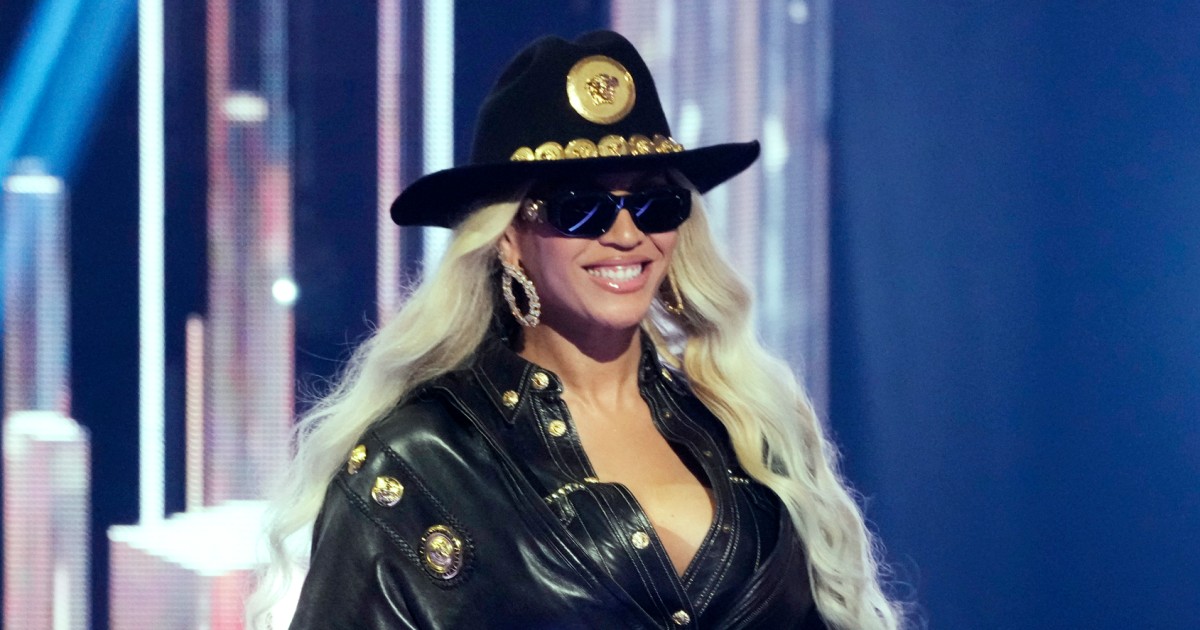Beyoncé fans may have been disappointed that her crossover album “Cowboy Carter” was shut out of this year’s Country Music Association Awards nominations, but it may not have been a shock.
The pop icon has been open about feeling unwelcome in the genre. She dropped country ode “Daddy Lessons” in 2016 and performed it at that year’s CMA Awards alongside The Chicks. Their performance received backlash from the genre’s fans, who complained that Beyoncé was not a country artist.
Many Black artists aside from Beyoncé have expressed how difficult it is to break through in the country music industry because executives often cater to white consumers. However, experts say there is more to Beyoncé’s snub than the industry’s longtime erasure of Black artists’ contributions to country music.
Amanda Marie Martinez, a postdoctoral fellow in the department of American studies at the University of North Carolina at Chapel Hill, points to the industry’s centralization in Nashville, Tennessee. Artists there are expected to “pay their dues” by playing honky-tonks, participating in writers rounds and showcasing their work around the city in order to build a successful career in the genre.
“There’s a real culture of deference where you’re supposed to bow down to the gatekeepers and fall in their good graces,” said Martinez, who researches anti-Blackness in the country music industry.
In contrast, rapper Post Malone made his first foray into country music this year and opted for a more mainstream country music sound, tapping Nashville giants to assist in his project. His latest album, “F-1 Trillion,” includes 15 features with artists like Morgan Wallen, Tim McGraw, Blake Shelton, Luke Combs and more. Malone, who was featured on “Cowboy Carter,” was nominated for four CMA Awards.
Beyoncé did not do this, nor did she have to, Martinez said. As one of the largest pop stars in the world, her career is not dependent on Nashville or the Country Music Association, which runs the CMA Awards. While she created a top country album and uplifted other rising Black artists in the genre, she did not cater to the mainstream country music business.
“Country music as an industry continues to absolutely be dominated by radio airplay, and to even be considered for voting for a CMA Award, you have to have received a certain amount of radio airplay,” Martinez said.
Neither Beyoncé nor the Country Music Association responded to a request for comment on the matter.
Country radio airplay is also dominated by white men, with women comprising 11% of airplay in 2022, The 19th reported last year. Black female artists had nearly zero airplay on country radio from 2002 to 2020, The Tennessean reported in 2021.
“Texas Hold ’Em,” the lead single off “Cowboy Carter,” reached the top of the Billboard Hot Country Songs chart. However, some country radio stations were slow to play the song and “16 Carriages,” when they were released, which Martinez said is a crucial part of the CMA Awards nomination process.
A No. 1 song on the Hot Country Songs chart can qualify for single of the year at the CMA Awards, but voters also take into consideration top songs on Billboard’s Country Airplay chart and Country Aircheck’s chart, according to the awards website.
Emmett Price III, dean of Africana studies at Berklee College of Music, said he was not surprised by the snub because Beyoncé is a “disruptor.”
“Cowboy Carter” has been considered a reclamation of country music because it highlights Black artists’ contributions to the genre. Many had hoped that it would bring more visibility to Black country musicians. Price said her album was “calling into question not only the historical and cultural roots of country and Western but also how we normalize certain cultural aspects of country culture.”
Like many Black artists who came before her, Beyoncé, Price said, has created a discussion about who is allowed into the country genre. Despite her influences and her Texan roots, many people still believe she isn’t country.
Price added that the CMA Awards reflect what the industry “believes are the great representers of the culture, of that space, of the genre.”
Country music has long been considered a genre that attracts a predominantly white audience. Martinez said that, based on her research of country music marketing materials, the industry’s target audience includes “adults in their 20s to 40s who live in the suburbs, are implicitly white [and] are socially conservative.”
As a result, country music executives and radio programmers aren’t necessarily promoting albums like “Cowboy Carter” because they don’t believe their audience would be interested.
The conversation around “Cowboy Carter” highlighted how much work still needs to be done to make the country music industry more inclusive. Martinez said the issue reaches far beyond Beyoncé. There are many Black artists in Nashville who have put in work to be recognized in the industry, but continue to be overlooked, she said.
Shaboozey, who was featured on two songs off of “Cowboy Carter,” and The War and Treaty were the only Black country acts to be nominated for CMA Awards this year. Shaboozey was nominated for new artist of the year and for single of the year with his smash hit “A Bar Song (Tipsy).” The War and Treaty were nominated for vocal duo of the year.
“With all of the Black artists that are out now, I’m looking for more representation and more inclusion, and I don’t see it,” Price said.
The CMA Awards snub has opened up a dialogue about where the country music industry can go from here.
“Beyoncé is gonna be just fine,” Price said. “But what does it mean for the other perhaps Black and brown or queer artists who have been marginalized, who have been pushed to the fringes because they don’t look country, or they don’t walk country, or they don’t sound country?”
“That’s the question, and I think we need to wrestle with that,” Price said.
For more from NBC BLK, sign up for our weekly newsletter.


